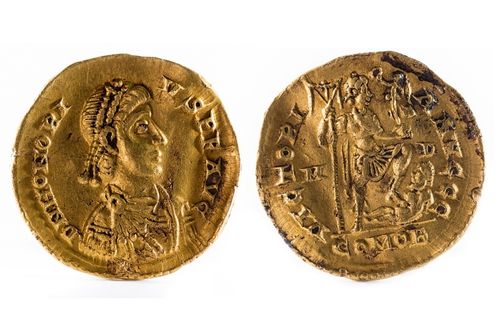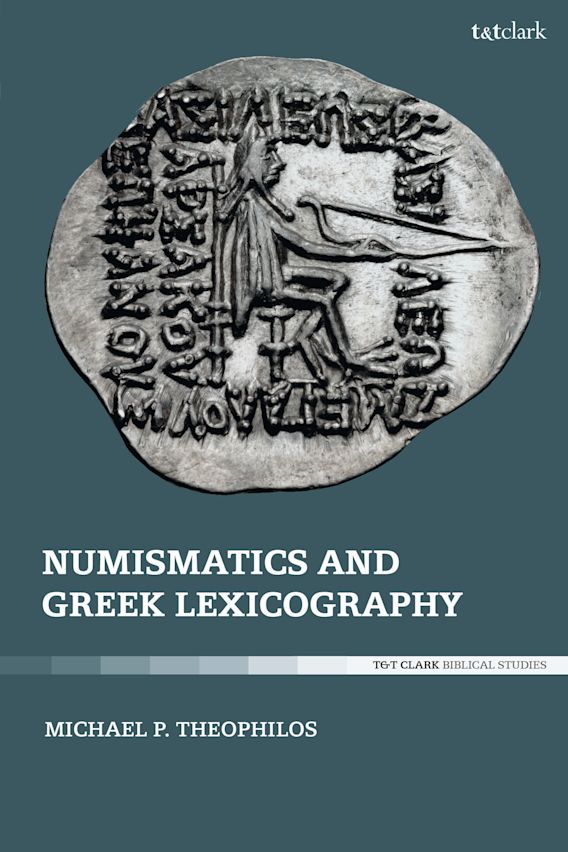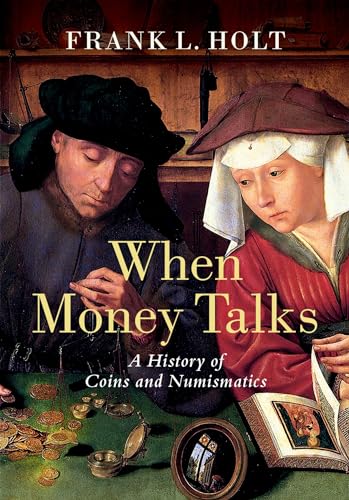Recommended Ideas To Picking Pound And Coin Rarity
How Do I Use A Numismatics Database To Conduct Research On Mints?Investigating numismatics related to mints by using databases requires specific strategies for gathering comprehensive data about the history of coin production, historical contexts, and advancement of minting methods. This is a structured method to select a database: Choose one database that is focused on coins from the past, numismatics and other related data. Numista or online catalogs of major mints such as the United States Mint, the Royal Mint or academic databases which archive research in numismatics are all possible options.
Define Research Focus: Specify your research objectives. Are you interested in the past of production, the volume of production, technological advancements, cultural and economic impact or another aspect of a specific mint? Tailor your search queries accordingly.
Search Strategy: Include the name of your mint as well as any other keywords you employ that relate to mints or numismatics. Results of searches can be narrowed by the type of document (such as historical articles catalog entries, or academic reports) as well as by geography with advanced search features.
Data collection: Gather information about the date of establishment, historical time periods, kinds of coins made, technology for minting (such as machine striking in comparison to hand striking), any notable incidents, or modifications to minting methods. Catalogs or databases that provide information on the specific coins that were minted based on the date, denomination, style, etc.
Analysis: Review your data for patterns, trends and differences in minting techniques across historical periods or geographical areas. Compare the evolution of metal composition and technological advances in minting techniques to determine the ways in which coin production could have been affected by stylistic evolution.
Cross-References: Verify what you have found by cross-referencing data from various sources. This will ensure that your research is correct and comprehensive.
Documentation: Be sure to document your findings in a structured way. Note sources and the techniques you used. Keep a detailed record of the databases used as well as the search terms you used and the significance of each source to your research objectives.
Keep Up-to-date: Research in Numismatics is a dynamic area, and there are always new discoveries to be discovered. Refresh the database periodically to get the most current information, or newly digitized archived.
These steps can help you utilize databases to do thorough research about numismatics and mints. This technique allows for a thorough study of the technological, cultural, and historical aspects of the production of coins. It offers valuable insight into the evolution in numismatic practices. Take a look at the most popular coin production recommendations for website info including silver, dirham, coin holder, coin rarity, banknote history, banknote dealer, coin series, copyright detection, coin authenticity, coin display and more.

How Can I Find Out More About Numismatics In Connection To Refineries By Using An Online Database?
This research involves using databases that contain information about refineries and numismatics. These databases comprise those that cover the refining of precious metals, the process of minting and historical and technical aspects. Here's a method to conduct such research:Database Selection: Choose databases that specialize in precious metals refining, minting, and the numismatics field. Databases offered by major refineries like Johnson Matthey or Heraeus; or government mints like the United States Mint, the Royal Canadian Mint, are an example.
Define Research Focus: Specify your research objectives. Are you interested in understanding the background and operation of particular refineries, the latest technological advancements in refining processes, the production of coins and bullion, or the standards of quality and certifications in precious metals refining? Clarify your goals to help you find the right solution.
Search Strategy - Use keywords to find refineries, including "precious metallics refineries", and other terms like "minting procedures", "bullion" or geographical regions. If applicable, include names of refineries, historical periods or geographical regions. Utilize advanced search options to filter results based on date, document type (such as technical reports, production statistics) and refining techniques.
Data Collection: Access to data regarding refineries like their founding dates, the types of precious material that are processed (such silver, gold, and platinum) as well as the method of refining used (such chemical refining, also known as electrolytic) or any significant advancements or developments in the past, or any innovations, in refining.
Analyze your data to determine the role of refineries in the numismatics world. Analyze how refineries provide precious metals to produce bullion and coins, as well as control quality during the process of minting and aid in standardizing coins and other metals for coinage. Examine refineries and technologies.
Cross-Referencing: Confirm your findings by cross-referencing information across multiple databases and sources. This will ensure the accuracy of your research and complete, giving you an accurate picture of refineries' contributions in the field of numismatics.
Documentation. Document your research findings thoroughly by citing the sources you used and mentioning the methodologies that you've employed. Keep track of information such as databases you've used as well as your search terms and the relevance of these to your research questions.
Keep up-to-date: Techniques and standards for refining change constantly. Stay up to date by following updates from refinery publications, industry publications, reports and mint publications for the most recent refinery techniques' developments and their impact on numismatics.
By following these steps, you'll be able to effectively make use of databases to research numismatics in relation to refineries. This method allows for a detailed investigation of the technological innovations, quality assurance measures and the historical contributions that refineries have made to the production of bullion and coins around the world. See the recommended more about mint condition for website tips including coin book, banknote club, coin rarity, currency exchange, zloty, banknote marketplace, currency forum, german coins, banknote history, coin display and more.

How Do I Use The Database To Look Up Numismatics Regarding Collectors?
The study of numismatics in relation to collectors involves using databases that focus on collecting interests, collections, society for numismatics, and collector profiles. A method that is structured is provided to assist you in conducting this type of research. There are a myriad of examples of online forums for collectors and websites for numismatic organizations (such the American Numismatic Association), as well as research databases and collector databases specifically focused on the field of numismatics.
Define Research Focus: Specify your research objectives. Are you looking to learn about the collecting interests and motivations of collectors as a whole as well as the creation of significant collections, trends in numismatics collecting, the cultural or historical motivations for collecting? Find out the key to your research.
Search Strategy: Use words such as "numismatic collectors,"" "collector profiles,"" "numismatic societies" and include specific collector names or geographic areas if appropriate. The results of your search are filtered through collecting specifics such as ancient coins, exonumia and paper money.
Data Collection: Get access to information about collectors. The information includes biographies collections, interests in collection, significant acquisitions as well as contributions to community activities, or the study of numismatics. Details on the origin and dispersion of notable collections are available by examining auction results and catalog entries.
Analysis: Study the data to understand the motivations and influences behind numismatic collecting. Explore how collectors impact collecting trends, create the needs of markets, and also contribute through educational initiatives, exhibitions or publications to help preserve and share the knowledge of numismatics.
Cross-Referencing - Check your findings with information from various collections, databases, auction archives or numismatic publications. This will ensure accuracy and completeness in your research and provides insight into the many role and contributions of collectors to the numismatic world.
Documentation. Document your research findings by systematically listing sources and noting the methods you used. Detail the databases used, search words, and the importance each source offers to the questions you have.
Stay updated: Numismatic trends and collection interest shift as time passes. Stay current by checking for updates on collector forums and publications from numismatic societies and specialized databases.
Take these steps to effectively use databases in order to research collectors and numismatics. This technique will allow for a deep investigation into the motivations of collectors, their motivations and contributions to numismatics. It provides valuable insight into cultural, historical and economic aspects of collecting practices. Have a look at the top more hints on coin catalog for website recommendations including coin artist, coin edge, uncirculated coins, antique banknotes, money, mint condition, banknote marketplace, banknote design, coin auction, banknote catalog and more.

What Can I Do With Databases To Study Numismatics Regarding Publications And Journals?
To conduct numismatic research, you can utilize databases that are specifically designed for historic publications, numismatic books academic journals, as well as academic articles. This is a methodical procedure for conducting this research: Database selection: Select databases that are specialized in the field of numismatic literature journal, scholarly journals, as well as academic papers. They include databases like JSTOR, Google Scholar and journals of numismatic societies (such the American Numismatic Society).
Define Research Focus: Specify your research objectives. Are you looking to learn more about numismatic history? What about specific coin types and periods, cultural aspects, technological innovations, the economic impact, or technological innovations in coin manufacturing? Determine your goals to help guide your study.
Search Strategy: If appropriate you can use keywords such as"numismatics," "numismatic publication"," and "numismatic magazines," as well as include particular topics or coins (such medieval coins, antique coins, or modern ones). Search results can be filtered by author affiliations, dates and publication types (articles or conferences, books).
Data collection: Find details about publications that are numismatic. Collect information such as the title of the article, authors abstracts, publication dates, abstracts and bibliographic details. Look through databases that offer access to full-text article or digital archives of historic numismatic journals.
Analysis: Analyze your data to better understand the current research trends and scholarly contributions of the field of numismatics. Examine the methods used in numismatic research, interpretations of iconography and coinage symbols as well as numismatic cataloging standards and the evolution of numismatic scholarship over time.
Cross-Referencing Verify information by cross-referencing across several databases. This includes numismatic publications as well as library catalogs. This will ensure completeness and accuracy when conducting your research. This also gives insight into the vastness of numismatic material.
Documentation: Document all your findings, noting which sources you consulted and the methods you used. Notate the database names, search terms and relevance of each source in relation to your research.
Stay up-to-date: Numismatic publications and research continue to develop with the latest discoveries. Stay up to date by keeping track of the latest news from numismatic societies, journals of academic research and scholarly databases to get the latest research findings as well as publications in the field of numismatics.
Follow these steps to effectively use databases for exploring publications and numismatics in relation to publications and journals. This technique allows for comprehensive examination of scholarly works and research methods offered by the numismatic literature. It also provides historical insights. Check out the best official statement for currency grading for blog recommendations including coin engraving, coin grading, coin history, currency catalog, banknote auction, coin mold, banknote auction, banknote magazine, czech coins, banknote dealer and more.

What Can I Do To Research Numismatics In Relation To Industry Consultants By Using An Online Database?
The research involves using databases to concentrate on individuals consultants, firms of consulting and industry reports. Also, there are publications from numismatic groups. Here's a method to conduct this research: Database Choice: Select databases that focus on consulting companies, industry reports, and publications relevant to numismatics. Examples include business directories, consulting company websites, publications of numismatic societies, and industry-specific databases.
Define Research Focus: Specify your research objectives. Are you interested in knowing more about consulting services offered to numismatic companies and market analysis reports on numismatics, expertise of consultants on specific numismatic sectors, or trends identified by industry consultants? Define what you're trying to find in order to limit your search.
Search Strategy: Utilize search terms such as "numismatic industry consulting”, "numismatic consulting companies", "market research reports on coinage" and also geographic regions, if appropriate. You can use advanced search features by selecting results according to consultant specialties and consulting services.
Data Collection: Access information about consulting firms that specialize in numismatics, as well as industry experts that offer services to numismatic companies. Find information about consultants, such as profiles, areas of specialization (market analysis, collection management, authentication) and testimonials from clients and reports written by industry experts.
Analyze: Examine your data to gain more understanding of the role and contributions made by industry experts. Examine the techniques and knowledge employed by consultants to advise on investments in numismatics market trends or collection management.
Cross-Reference: Verify the accuracy of your research by cross-referencing information from multiple databases, directories of consulting firms, books and reports published by numismatic societies as and industry reports. This lets you do a thorough and precise research. You will also be able to see the full overview of the consulting industry in the field of numismatics.
Documentation: Documentation is crucial. Cite sources and note the method used. Detail the databases that you use, the search terms used and the relevancy of sources to your questions.
Keep yourself up-to-date Market trends and consulting services in numismatics are changing according to changes in economic conditions and laws. Keep up to date by keeping an eye on updates to consulting firm websites, industry publications, and the numismatic societies' publications. These will provide the latest perspectives and insights from experts in the field.
Databases can be used to investigate numismatics as well as consultants working in this field. This method enables an in-depth analysis of the consulting services, market analysis, and strategic insight offered by consultants who work in the numismatics industry. These information can provide useful perspectives on numismatic business operations as well as investment strategies and market dynamics. Have a look at the top rated banknote forum for website info including coin society, banknote errors, coin rarity, currency authentication, currency exhibition, banknote forum, dirham, dollar, circulated, banknote catalog and more.
